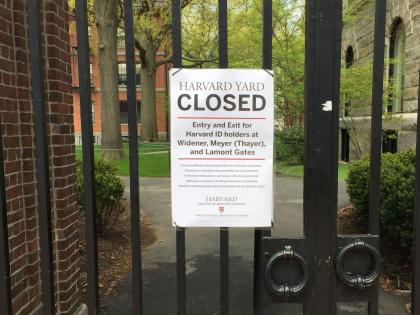Can high-level literary criticism be, you know, relevant? Count on Cogan University Professor Stephen Greenblatt, the formidable Shakespeare scholar, to enter the fray. Close on the heels of his volume about the Adam and Eve myth (see “Always Leaning into Wrongdoing,” September-October 2017, page 60) comes a study of how the Bard portrayed the powerful. From chapter one of his new book, Tyrant (W.W. Norton, $21.95):
From the early 1590s, toward the beginning of his career, all the way through to its end, Shakespeare grappled again and again with a deeply unsettling question: how is it possible for a whole country to fall into the hands of a tyrant?
“A king rules over willing subjects,” wrote the influential sixteenth-century Scottish scholar George Buchanan, “a tyrant over unwilling.” The institutions of a free society are designed to ward off those who would govern, as Buchanan put it, “not for their country but for themselves, who take account not of the public interest but of their own pleasure.” Under what circumstances, Shakespeare asked himself, do such cherished institutions, seemingly deep-rooted and impregnable, suddenly prove fragile? Why do large numbers of people knowingly accept being lied to? How does a figure like Richard III or Macbeth ascend to the throne?
Such a disaster, Shakespeare suggested, could not happen without widespread complicity. His plays probe the psychological mechanisms that lead a nation to abandon its ideals and even its self-interest. Why would anyone, he asked himself, be drawn to a leader manifestly unsuited to govern, someone dangerously impulsive or viciously conniving or indifferent to the truth? Why, in some circumstances, does evidence of mendacity, crudeness, or cruelty serve not as a fatal disadvantage but as an allure, attracting ardent followers? Why do otherwise proud and self-respecting people submit to the sheer effrontery of the tyrant, his sense that he can get away with saying and doing anythng he likes, his spectacular indecency?
Shakespeare repeatedly depicted the tragic cost of this submission—the moral corruption, the massive waste of treasure, the loss of life—and the desperate, painful, heroic measures required to return a damaged nation to some modicum of health. Is there, the plays ask, any way to stop the slide toward lawless and arbitrary rule before it is too late, any effective means to prevent the civil catastrophe that tyranny invariably provokes?








